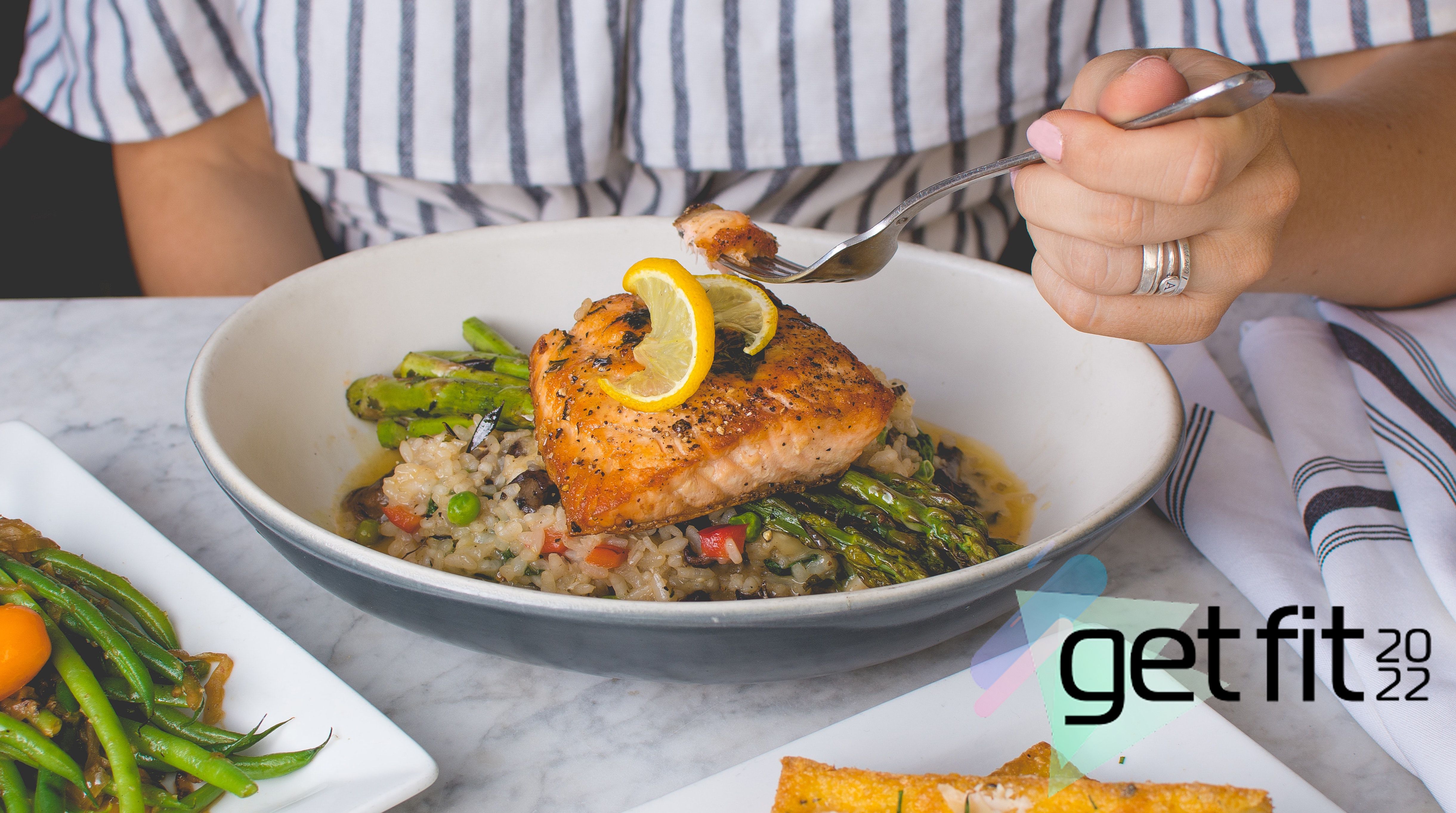Seven tips to increase your energy levels and maximize your workout
Keep your workouts going by making sure you have your nutrition sorted out first

Proper nutrition will maximize your workout performance and provide you with the energy needed to exercise well. When it comes to fueling up before or after a workout, it’s important to achieve the right balance of complex carbohydrates, protein, healthy fats, and other nutrients.
Here are the best ways to make sure your nutrition is in check to get the most out of your workouts.
Focus on complex carbohydrates
Carbs provide a faster energy source compared with proteins and fats. Unlike simple carbs which tend to spike your blood sugar, complex carbs ensure a steady energy supply throughout the day because you digest them more slowly.
Studies suggest that eating or drinking carbohydrates before exercise can improve workout performance and may allow you to work out for a longer time or at a higher intensity. Therefore, make sure to include more whole grains in your meals such as: whole grain bread/cereals, oats, quinoa, buckwheat, bulgur, beans and legumes, starchy vegetables (sweet potato, corn, potatoes) all within controlled portions.
For healthy meal ideas, try oatmeal with nut butter, raw nuts and fruits or smoked salmon with avocado on whole grain toast for breakfast. For lunch or dinner try grilled salmon with quinoa and vegetables, tuna salad with vegetables and beans, or grilled lean steak with sweet potato.
Power up with protein
As part of a balanced diet, ensuring you get enough lean, protein-rich foods can boost metabolism at mealtime. Good sources of protein include lean beef, white meat chicken/turkey, fish, tofu, nuts, legumes, eggs, and dairy (milk and yogurt). To keep your choices healthy, limit the amount of red and processed meats that you eat.
According to the Dietary Reference Intake report for macronutrients, a sedentary adult should consume 0.8 grams of protein per kilogram of body weight per day; exercisers and older adults need more.
Get daily insight, inspiration and deals in your inbox
Sign up for breaking news, reviews, opinion, top tech deals, and more.
Snack smart
Having a healthy snack every 3 to 4 hours keeps your metabolism moving. Pre-workout snacks that combine complex carbohydrates with protein can make you feel more energized. The timing of the snack depends on what works best for you and on the duration of the workout.
Nuts are a great source of heart-healthy fats and also provide protein. They can give you a source of constant energy for your workout. Pair them with fresh or dried fruit for a healthy dose of carbohydrates. Boost your energy with fruits and vegetables; try to “eat the rainbow” by choosing fruits and veggies of different colors. This will help you enjoy the full range of vitamins, minerals, and antioxidants they offer.
Some great pre-workout snack options include banana with a serving of peanut butter, a fruit smoothie with almond butter and leafy greens or even raw nuts (almonds, walnuts, Brazilian nuts) combined with dates and a sprinkle of chia seeds.
Recharge with matcha & maca
Caffeine can help you feel less tired and even increase your endurance while you exercise. Drinking matcha tea offers the combined benefits of caffeine (which will help you stay alert and focused) and catechins, substances shown to speed up the metabolism for a couple of hours. Matcha has a significant amount of caffeine and is a great alternative for those who hate coffee. You can enjoy matcha tea hot or iced, can be lightly sweetened with maple syrup or honey, adding fruit, or blending it into a smoothie.
Another super ingredient to add to your routine is maca root powder. Studies have suggested that supplementing with maca root may improve exercise performance, particularly during endurance events. Maca root is available in powder form or in capsules and can be added to smoothies, oatmeal, and baking.
Fuel up with water
Making sure you are properly hydrated during the day can increase your energy and reduce feeling tired. You need adequate fluids before, during and after exercise to help prevent dehydration. According to the U.S National Academies of Science and Medicine, men need about 15.5 cups (3.7 liters) of water per day, while women need 11.5 cups (2.7 liters) a day. These recommendations cover fluids from water, other beverages, and food. To increase your water intake, drink a glass of water or other unsweetened beverage before every meal and snack. Also, snack on fresh fruits and vegetables, which naturally contain water.
Sleep well
Deep sleep fills an essential role in a person's optimal functioning. Make sure to get enough sleep to restore your body’s energy and get ready for your next workout. Consider investing in a fitness tracker or smart watch that can track your sleep levels, so that you can track the quality of your sleep daily and make improvements.
Watch the portion size
The general guidelines recommend large meals to be eaten at least 3 to 4 hours before working out, while small meals or snacks should be eaten about 1 to 3 hours before working out. Eating too much before you exercise can leave you feeling lazy, while eating too little might not give you the energy you need to keep feeling strong throughout your workout.
While all foods provide energy, eating a balanced diet rich in complex carbs, proteins and healthy fats may be the best way to avoid energy crashes throughout the day.
This article is part of TechRadar's Get Fit in 2022 series – a collection of ideas and guides to help get your new year's health goals off to the right start, whatever your current level of fitness.
Farah Ghanem is a certified nutritionist helping people make a positive impact on their lives, eating habits and nutritional choices. Throughout her journey, she has helped people get back on track, create healthy ways of living, reach their dietary goals, repair their blood tests and enabled them to build a healthy relationship with food building healthy habits that lasts.
